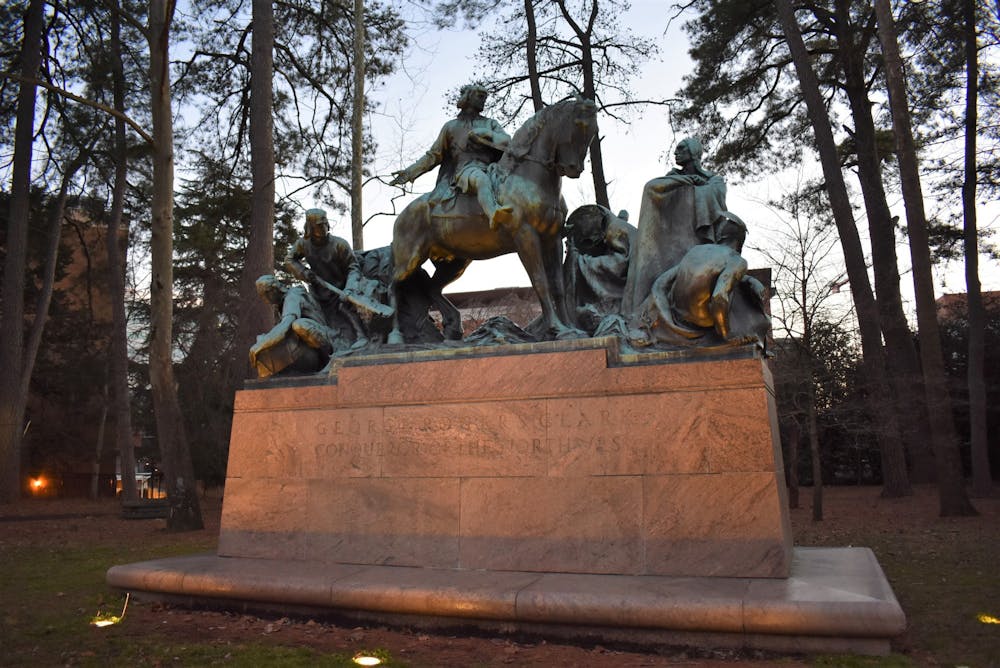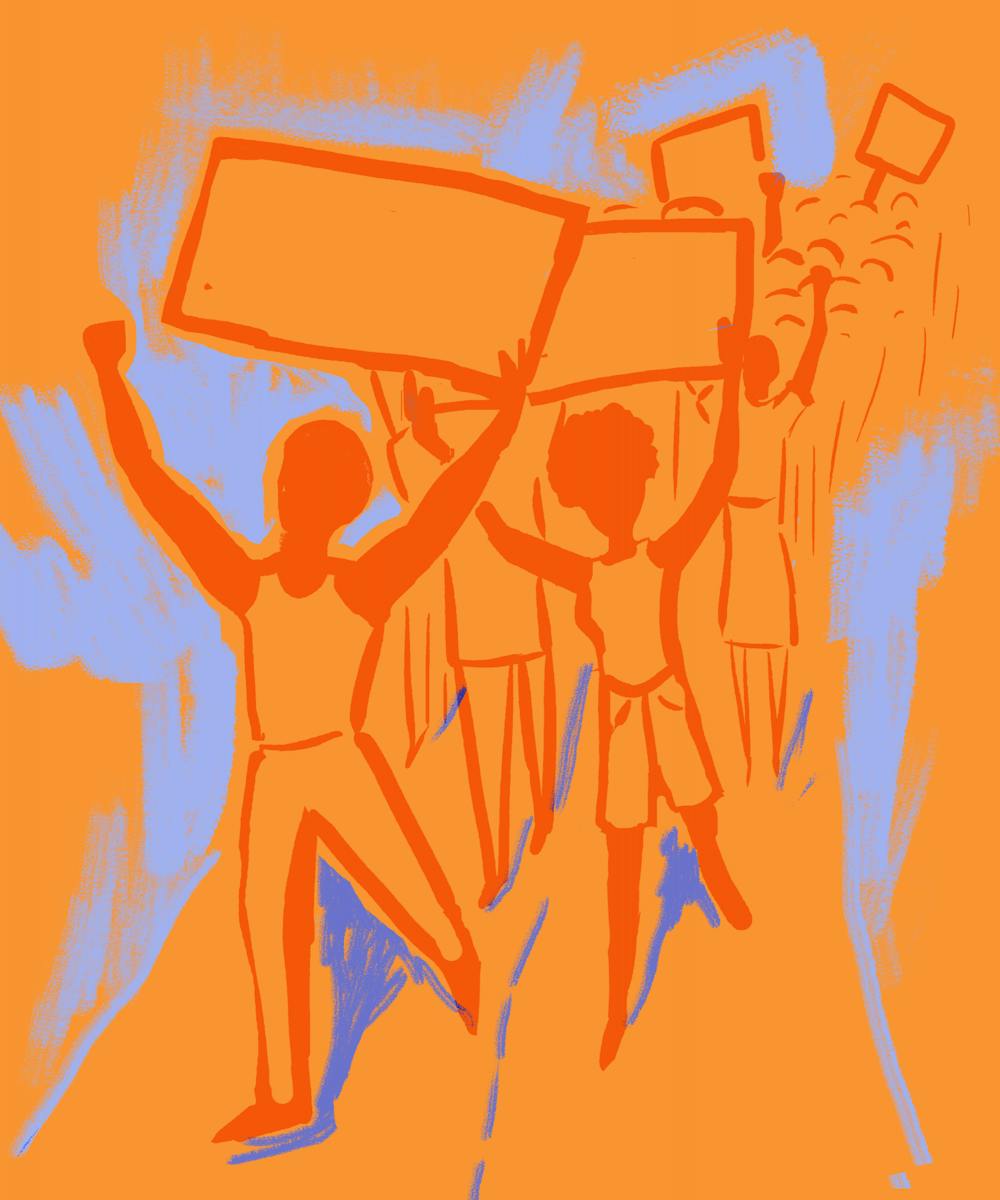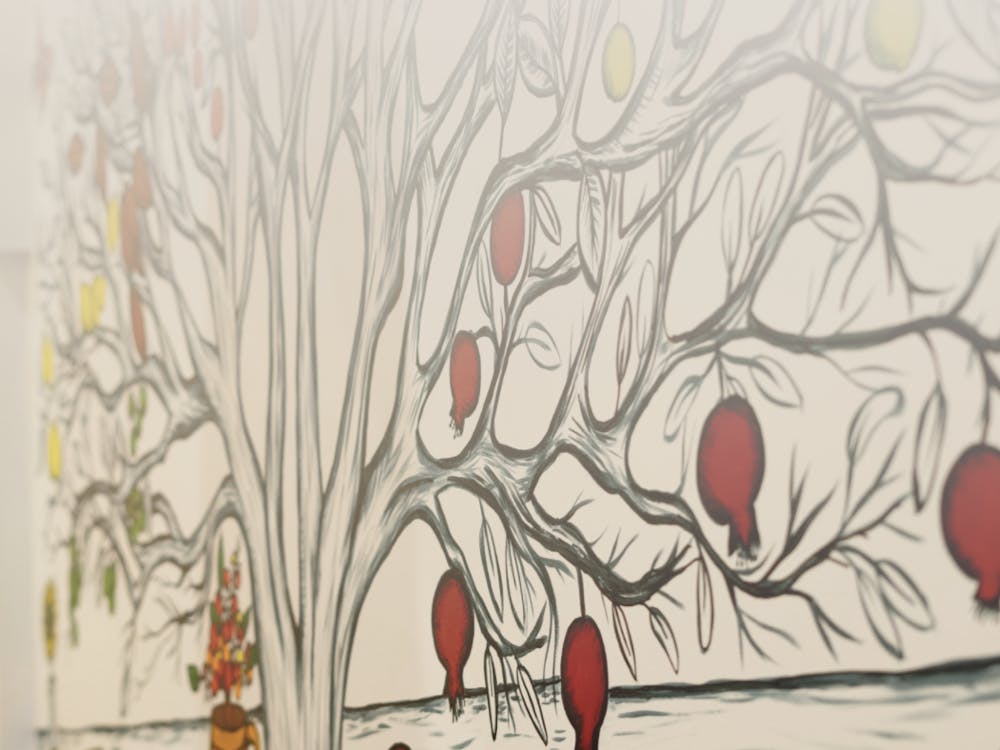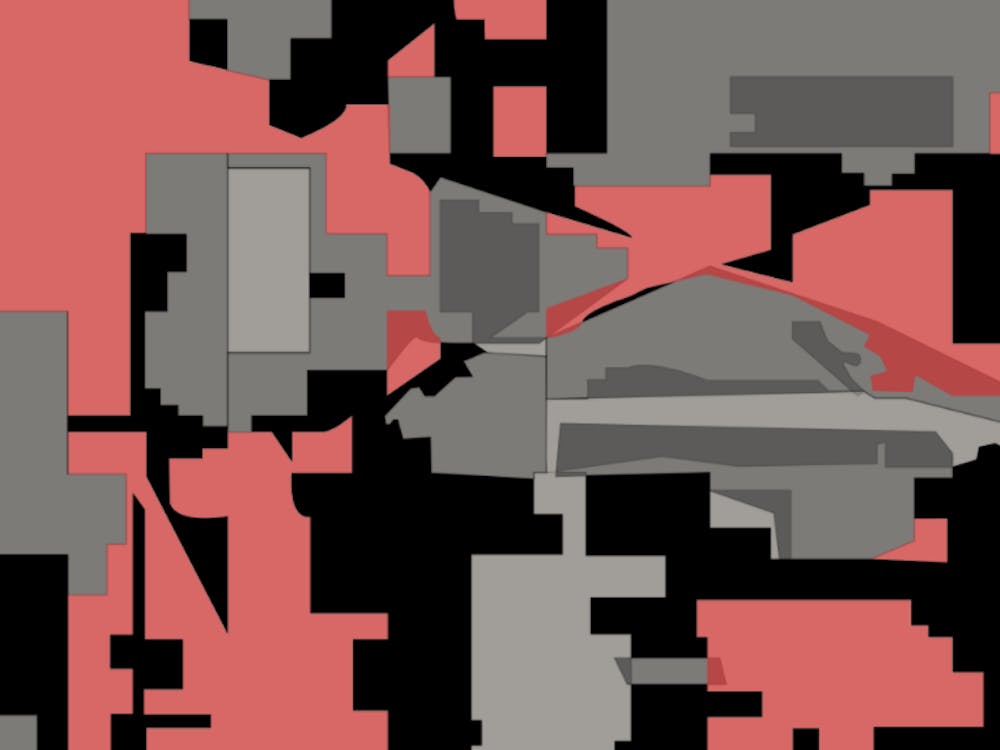“The Black Student Alliance facilitates community for Black students at an institution that may otherwise feel unwelcome to them,” said Norah Mulinda, a fourth-year College student and former BSA special events chair. “It can be difficult for students to transition into a space that wasn’t built for them, surrounded by people who may not always be looking out for them. BSA provides resources, companionship, and advocacy for Black students at the University who may have otherwise felt siloed from the overwhelmingly white majority.”
The Black Student Alliance was formed in 1969 by a group of Black students who sought to create an organization they could call their own. It describes its mission as an organization that articulates the voices and concerns of the Black student population at the University.
JaVori Warren, Class of 2020 alumna and former BSA President for the 2019-20 academic year, outlined her desire to continue BSA’s goals of supporting Black students at the University.
“[BSA’s] main goal is to empower and uplift the Black community, which we strive to do by hosting numerous programs and opportunities for students to engage in specifically catered towards Black students and the Black student experience,” she said.
The Black Student Alliance has a history of empowering Black students both at the University and within the larger Charlottesville community itself. In October of 1975, the Black Student Alliance released its “Proposal For The Establishment of an Office of Minority Affairs At The University of Virginia,” demanding, among other things, the creation of an office to support Black students at the University by the summer of 1976.
That same month, 300 Black students marched to then-University President Frank L. Hereford’s residence to present the proposal, resulting in his promise that the University would begin addressing their concerns.
Following the proposal and march, Dr. William M. Harris, Sr. was appointed as the Office of African American Affairs’ first dean and assistant provost in July 1976, and the office formally opened on March 4, 1977.
Over the course of the organization’s 52 year history, BSA has repeatedly made demands for change, many of which the University has failed to meet.
"There have been demands that have been met in the past,” Warren said. “But the overwhelming majority of demands from not just BSA, but Black students [in general] and other Multicultural Student Organizations, just haven't been.”

Courtesy Ava Proehl
In recent years, BSA has released demands in the aftermath of events that have caused harm to Black communities, each time calling upon the University to address these instances of aggression. For example, one month after the violent arrest of Martese Johnson in March 2015, BSA released a report entitled “Towards a Better University,” which it wrote with consultation from the Frank Batten School of Leadership and Public Policy and the endorsement of 29 other student groups. The document incorporated requests for increasing the Black faculty and student yield and for the University to implement a “Culture of Truth” to go in hand with its “Community of Trust.”
Then, in the aftermath of the Unite the Right rally of Aug. 11 and 12, 2017 — when self-identified white supremacist groups marched through campus to protest the removal of the Robert E. Lee statue in downtown Charlottesville — BSA organized the March to Reclaim Our Grounds event.
The March To Reclaim Our Grounds was a community-wide event, which invited guest speakers including students, Charlottesville community resident speakers and Black Voices. The attendees marched throughout campus, taking the same path that the white supremacist rally protesters traversed, to "reclaim these grounds built by our ancestors from the taint of white supremacy," the event flyer on Facebook said. Along with the march, BSA organized a list of 10 demands, one of which included a "special emphasis" on improving relations with the Charlottesville community.
In June of 2020, as a response to the recent COVID-19 pandemic and the deaths of George Floyd, Breonna Taylor and Ahmaud Arbery, BSA shared via social media a “Reiteration of Historic, Yet Unmet, Demands.” The list outlines various demands that the University has failed to address, citing demands that date back to as early as 1970 and that came from various student organizations operating in the University.
One of these demands — originally made in 1970 — called for the University to “publicly commit itself to accepting 20 percent as a goal for the enrollment of Black students throughout the University; and further, that $100,000 be allocated for Black admissions programs.”
The University has failed to meet this demand since then. In 1991, Black students comprised 12.1 percent of the University’s student population — the highest it has been in the University’s history — yet this year, Black students only comprise 6.8 percent of undergraduates.
“It's definitely disheartening and it can be a little discouraging when you see that you're asking for the same things that Black students and the Black Student Alliance have been asking for since 1969,” Warren said.
Another demand, made in 2020, called directly for “the University to include students in the decision-making process regarding COVID-19 responses that impact students.”
Deric Childress Jr., current BSA president and third-year College student, also expressed his dissatisfaction with the University’s failure to respond to the demands of Black students.
“I feel like the University has failed the Black community once again,” Childress Jr. said. “Years back and then just recently with us restating the demands in our grievances after the deaths of Ahmaud Arbery, Breonna Taylor and George Floyd … I think only one or two of those [demands] have been met.”
BSA however, still plans to work with the University to better outcomes for Black students.
“I feel like going forward BSA will constantly reiterate these demands for as long as we need to until they're met, '' Childress said. “[We] … constantly discuss with administration what BSA needs done and what we need as a community … and organization going forward.”
Childress also expressed how it’s important for the Black Student Alliance to create a space of comfort for Black students at the University after they have been admitted.
“BSA [wants] to continue creating space and fostering relationships to make the Black experience at U.Va. better,” he said. “We're constantly revitalizing things, so overall we want to become a better Black Student Alliance for the Black people at U.Va. [Our goal is] to represent our people well and accomplish what our people need and want.”
To help accomplish this, the Black Student Alliance organizes several events throughout the academic year for students to build a community and more easily foster relationships with their peers. These events have also addressed important issues that Black students face, such as assemblies of students in response to instances of police brutality.
One assembly was held in September of 2016 in participation with the “National Die-In” in which students stood outside of Old Cabell Hall. Facing the Rotunda, students stood in solidarity with the lives lost to police brutality — a response directly related to the deaths of Terence Crutcher and Keith Lamont Scott in Tulsa, Okla. and Charlotte, N.C., respectively, at the hands of police officers.
Following the act of the “n-word” being written in permanent marker on the Kent-Dabney first-year dorms in 2016, the Black Student Alliance held “Dorm Talks.” These discussions involved BSA members visiting different dorms around campus to share a presentation discussing the dangers of implicit bias and microaggressions and describing the importance of anti-racism.
While some of BSA’s events have been organized in response to racist acts experienced on campus, other events are for the sake of socializing, building relationships and forming new bonds and friendships. These events include Welcome Week, which is hosted in the fall for new students, Black Ball, which is hosted every February during Black History Month, and BLACKOUT, which is an outdoors event that celebrates all of the Black graduates at the University held at the end of the semester, as well as various other activities which encourage social connection.
Even though COVID-19 has restricted BSA’s ability to host the large in-person social gatherings and events that it annually holds, the organization has prepared and taken the necessary steps to make many of its events accessible to students without breaking health guidelines and restrictions for the 2020-2021 academic year.
“[We will] always have some sort of virtual or online component to all of our events and meetings,” Warren said.
BSA has not only done the work to transition their typically in-person events to an online format, but they have also made plans to support students as they return to campus from a summer drastically impacted by COVID-19.
“[We want] to try to make sure that we're being more accessible to other topics that have come up recently — just trying to make sure that we're addressing the mental and emotional toll that [the summer of 2020 had] on Black students,” Warren said. “[We want to] make sure that we’re supporting students, knowing the coronavirus is disproportionately affecting Black and brown communities.”
Events hosted by the Black Student Alliance have provided different opportunities for those who participate. While these events are usually social and aid students in creating bonds and forming memories with their peers, these events have also served a purpose in igniting and creating opportunities for leadership among students who have an interest in deepening their involvement within the organization.
Through leadership opportunities such as roles on the executive board, joining committees and pioneering group events, students have also been able to pursue some of their own personal interests and create a platform for others to share their stories and experiences as well. This has also allowed students to reach out to Black residents within their community and connect with different people across the country.
Ciara Blackston — Class of 2020 alumna and BSA vice president for 2018-19 and 2019-20 academic years — reminisced on her time in BSA and how attending events eventually led to becoming more active around campus.
“What I loved about being vice president is that I had free rein to do specialty events that I really thought engaged the community,” Blackston said. “[During] my third year, I did a movie screening for ‘Us,’ a Jordan Peele film, and then during my fourth year, I was able to lead the charge in bringing Cyntoia Brown to Grounds.”
It is not uncommon for the Black Student Alliance to bring in nationally recognized guest speakers. Back in February of 2013, BSA held an event for American activist and poet Nikki Giovanni, who spoke on the importance of student activism and held a book signing for those who attended.
Past guest speakers have also included University faculty. In February of 2019, the Black Student Alliance hosted an event with Beverly Adams, assistant dean and associate psychology professor, who spoke on the stigmas and significance of mental health within the Black community — an event that was also co-sponsored by the Eta Sigma Chapter of Kappa Alpha Psi Fraternity Inc., a historically African American intercollegiate Greek-letter fraternity.
BSA has also held events throughout the fall semester that have provided students with a space to talk about their frustrations, what’s on their mind and how they are traversing through the semester. One of these events was an Election Processing Community Space, held in conjunction with the National Pan-Hellenic Council in November of 2020. The event created “an open and safe space for Black students to debrief and share their thoughts regarding the election.” BSA also organized several presidential and vice presidential debate watch parties through their Political Action Committee throughout the 2020 presidential election season.
However, organizers say it is also important that students feel safe and open to actively engage in these events.
“We want to make sure that students know that we support them … [and that] their well-being is our priority,” Warren said. “We're also talking about those harder-to-have conversations of really challenging our own internal ideals ... [as well as] those ideals that ... we maybe don’t take the time to really analyze.”
In catering to individual interests, the Black Student Alliance has several sub-committees students can apply to.
“We have academic development, professional development [and] social, cultural, political and special events.” Childress said. “Through those committees, we allow people to build relationships and become more familiar with the Black community at U.Va.”
The other committees that the Black Student Alliance offers for students are the communications committee, finance committee and membership committee. Every committee in BSA serves a specific niche, but they also make up part of the larger BSA experience.
“The Black Student Alliance has broadened my scope in many ways,” Mulinda said. “It has molded me into a better university student and overall citizen. It has helped me to see that even as a student, I have the power to challenge systems and demand change. It has also taught me the importance of valuing the community that you’re in and being a support system for the Black Charlottesville community as they continue to be for us.”
While the Black Student Alliance is a University-oriented organization, BSA has also shown its support of the Black community beyond University walls. In June of 2020, the Black Student Alliance pulled from its own resources to donate directly to Charlottesville organizations that were dedicated to uplifting the Black Charlottesville community. In a previous article by The Cavalier Daily, Warren discussed how she encouraged others to donate to their local community as well, whether it be in Charlottesville or somewhere closer to home.
Even though BSA has done past work supporting the Charlottesville community directly, members have no plans to stop their work at just making donations to organizations that empower the Black community.
“I would love to see BSA do more within the Charlottesville community [and] make sure that as a Black population within Charlottesville — both students and Charlottesville residents — that we can become more united, as I think that is a great way to build a coalition that can work,” Blackston said.
The Black Student Alliance has also opened its doors to those who come from various backgrounds and, as an organization, has worked towards creating a space where both Black students and their allies can learn and grow.
“BSA provides a safe environment where you can speak freely without being afraid of judgement,” said Holly Battist, third-year Education student and BSA executive board member, in an interview with the Cavalier Daily. “We host many events not just for Black students, but for anyone who is interested.”
However, the COVID-19 pandemic has affected the coordination of these events for community-wide engagement at the University to some small extent.
“Prior to [COVID-19] happening, we had goals moving forward to try and keep Black students engaged — to encourage more unity among Black organizations and co-sponsorships with other Multicultural Student Organizations,” Warren said.
One of the core values of the Black Student Alliance, alongside creating a place of comfort for students, is recognizing and remembering the history of Black workers, student alumni and BSA itself, all of which have largely contributed to the success of the University today.
“History is so important, especially to me, and I think to the other members of BSA as well. Just knowing your history as a student organization can really set the tone for where you guys go when you're moving forward,” Warren said.
While BSA strives to keep the history of the organization and Black members of the University community alive, part of keeping that history alive also includes pushing the University towards recognizing the Black people that have contributed much of their life to the University’s success.
“[Enslaved people] built the University, [and] it took [the University a long time] to put some sort of remembrance for enslaved laborers,” Childress said, referencing the recently completed Memorial to Enslaved Laborers.

Courtesy Cyrena Mantingou
Other members of the Black Student Alliance’s executive board also shared their dissatisfaction with how the University has failed to recognize and appreciate the work that directly went into the creation of the University. They emphasized the goal of BSA to ensure that Black contributions are formally recognized just as much as other contributions made by their white counterparts.
“I think that U.Va. is very content in doing surface level acts that give the appearance of activism,” Blackston said. “I know that U.Va. loves to create a committee, loves to do all [of] the things that sound great in media bytes, but in terms of doing the real work, they often neglect [doing the real work].”
As the Black Student Alliance continues in its efforts to work with the University and uplift the voices of its Black students and Black Charlottesville community members, it has guided its members towards success by supporting them through hardships during their time at the University.
“[The Black Student Alliance is] definitely something that I'm extremely grateful for,” Warren said. “When we do go through situations, [I’m grateful] that I do have an exec board… and committee members … it’s a community at the end of the day, BSA really is a family for me … [and] it’s motivated me to always advocate for Black students. I don’t know what my U.Va. experience would look like without BSA.”
This article has updated. A quote from JaVori Warren has been shortened to "It’s motivated me to always advocate for Black students" to better reflect Warren's sentiments.







